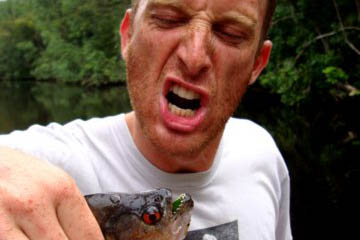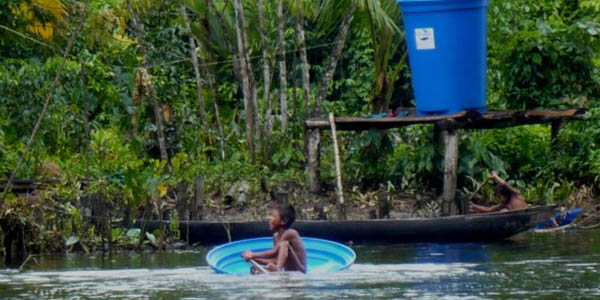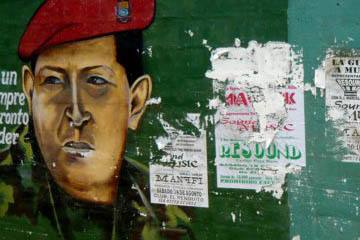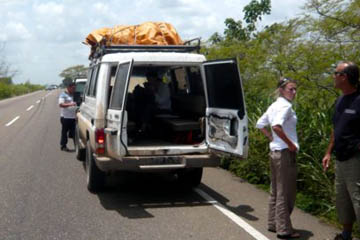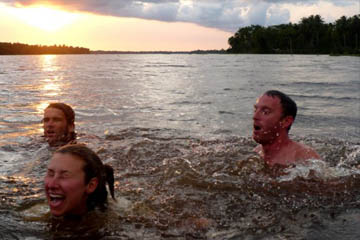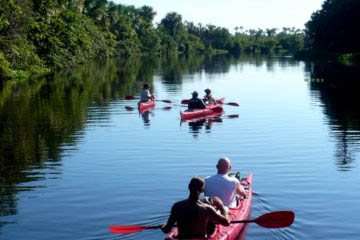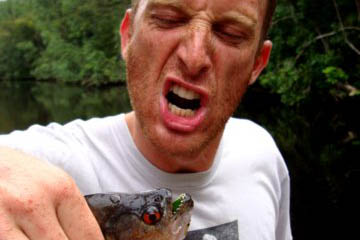A Warao child plays in the government water collection lids.
The morning was nigh for a week long jungle adventure deep into the heart of Venezuela’s Orinoco Delta.
We’d be leaving at 5am, packing light into dry bags. Accommodation would consist of hammocks, meals of camping basics, or whatever we can catch.
